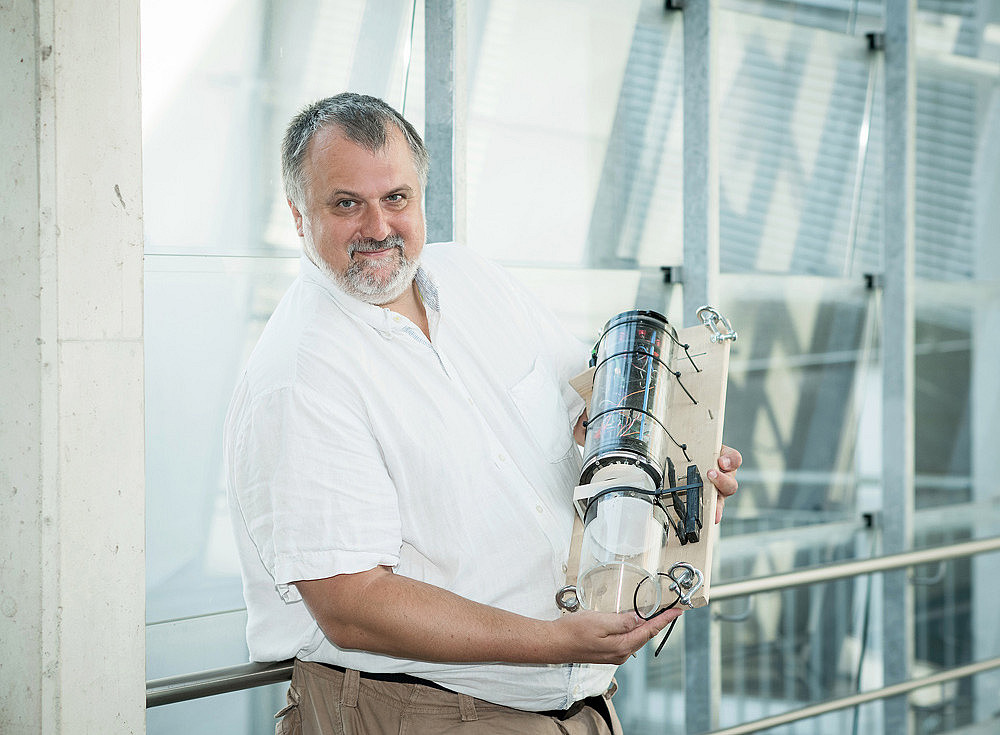Animal-like robots that monitor water quality in lakes and oceans are to be developed in the EU-funded BioDiMoBot project. The Department of Biology is coordinating this project, which is funded with a total of eight million euros over five years. Partners are the Universities of Brussels, Pisa and Durham (UK), an English fishing company and a Graz-based business consultant.
"Our aim is to produce so-called biohybrid robots that record the animals' behavioral data in addition to classic water quality parameters such as temperature, turbidity and pH value," reports coordinator Ronald Thenius. Artificial intelligence supports the scientists in evaluating the data. The measuring systems developed are to be made available to a broad scientific community and other interested groups in order to enable optimised water management and more sustainable yields in fisheries.
BioDiMoBot will be launched in 2025 and by the middle of next year, the robots will send information from Austrian lakes, coastal fisheries in England, Ireland, Iceland and Greenland as well as in natural areas in the same regions.
Linking biology and technology
The project builds on the results of previous research from the "Complexity of Life in Basic Research and Innovation" (COLIBRI) priority area, such as subCULTron and Robocoenosis, and extends their scope to include coastal marine ecosystems. How to decipher complex biological systems and their function is also the topic of the Complexity of Life Conference, which is taking place this week at the University of Graz. Scientists from various fields, from experimental biology to physics and mathematics, are coming together to discuss the latest advances in one of the most important research questions of the 21st century.
Ronald Thenius presents the prototype of a biohybrid robot. Photo: Christa Strobl
